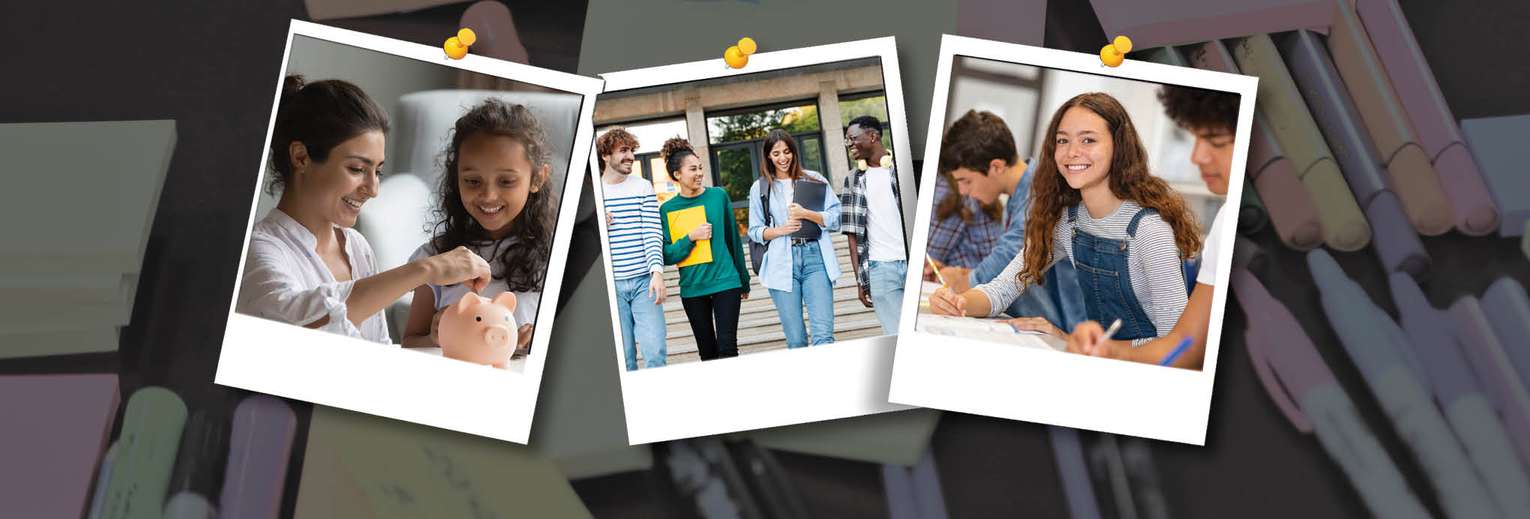Money conversations don't have to be awkward. In fact, they're one of the most important gifts you can give your children. Talking about money as a family can sometimes seem complicated, but what’s important to remember is that it’s one of the most valuable conversations we can have. It helps children develop financial independence and a healthy relationship with money—something that will benefit them throughout their lives. When families talk openly about money, kids grow up with financial confidence.
Whether you're explaining coins to a preschooler or discussing credit cards with a teenager, these conversations build essential life skills, and they're easier to start than you might think.
Build Financial Literacy for Preschoolers: Start with Simple Concepts
Even young children can grasp basic money principles when explained in age-appropriate language. You can tell them that money is what we use to buy what we need, and that we have to make good choices about how to spend it. Early on, you can also explain the difference between a want and a need, and especially the value of patience and saving.
These foundational concepts set the stage for more complex financial literacy later on. When preschoolers and young elementary students understand that money is finite and choices matter, they begin developing critical thinking skills around spending.
Build Money Skills with Older Children
With slightly older children, you can start talking about budgeting, savings goals, and how to plan purchases. This is a great time to give them a bit of independence, such as a small amount of money to manage or involving them in a family decision.
This hands-on approach helps children connect abstract concepts to real-world experiences. Whether it's saving allowance for a desired toy or helping compare prices at the grocery store, these practical lessons stick with kids far longer than lectures ever could.
Talk Money: Have Real Conversations with Teens and Young Adults
With teenagers and young adults, you can start having more concrete discussions. You can talk about credit, interest, emergency savings, and even peer pressure. You can help them see that every financial decision has both positive and negative consequences, but that we can always adjust and learn from them.
This age group is ready to understand the nuances of financial decision-making. They're beginning to make independent choices and face social pressures around spending, making this the perfect time to discuss topics like debt management, building credit responsibly, and distinguishing between financial marketing and genuine value.
Turn Financial Challenges into Learning Opportunities
If your family goes through a difficult time—such as debt or job loss—that too can be a learning opportunity. Show them that asking for help is a sign of responsibility, not weakness.
A Licensed Insolvency Trustee can help you explore the options available to you when facing financial challenges—always without judgment. These professionals provide confidential support and practical solutions during difficult financial periods.
The Bottom Line: Values, Not Just Dollars
The key message to remember is that talking about money is really about talking about values, choices, and resilience. It's about teaching our children that money isn't a taboo subject—it's a tool to help them build their future and make sound decisions.
When you normalize money conversations in your household, you remove the shame and secrecy that often surrounds finances. You empower your children to make informed decisions, ask for help when needed, and develop the financial confidence that will serve them throughout their lives.
Need Financial Guidance?
To find a Licensed Insolvency Trustee near you, visit the CAIRP website for trusted, judgment-free support with your financial questions and challenges.
